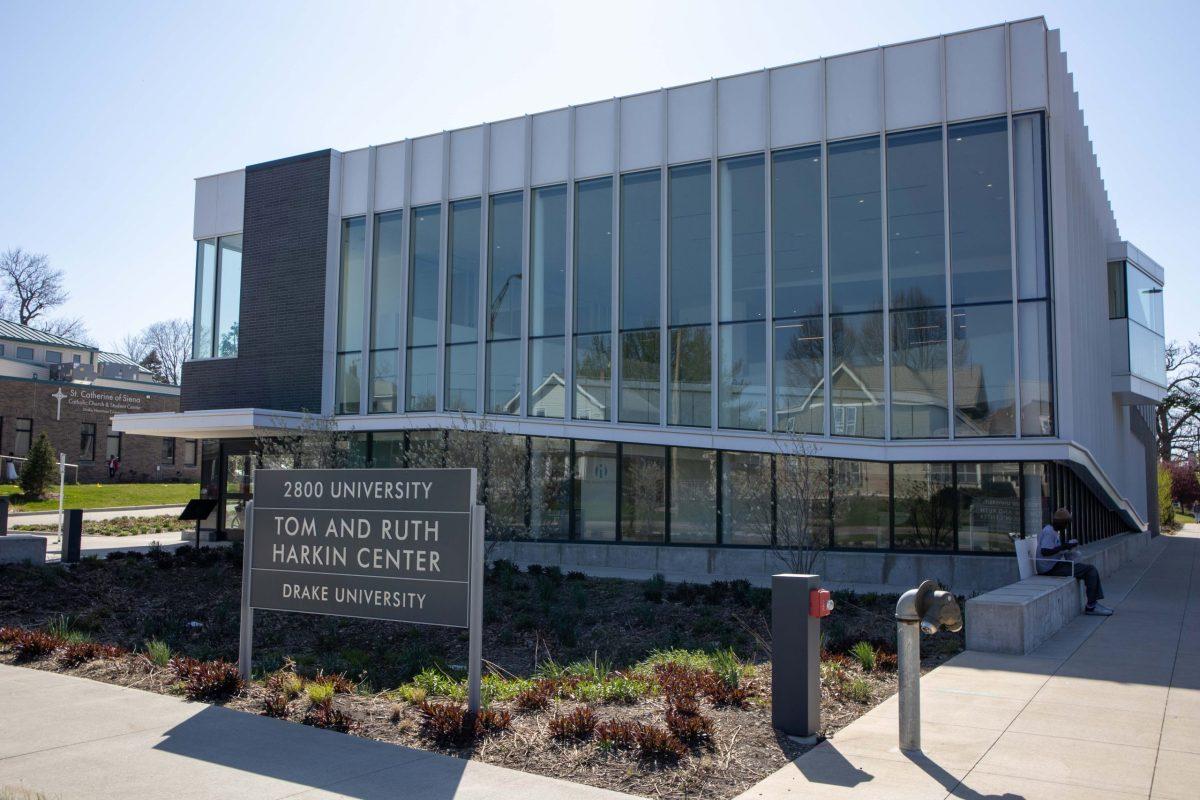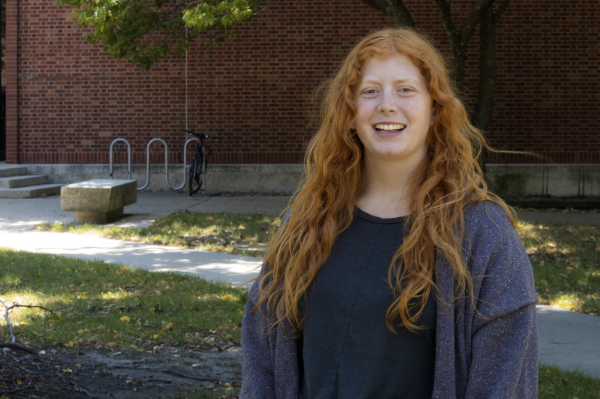When Morgan Ryan, co-founder of Drake’s Disability Coalition (DISCO), and the rest of DISCO received a request from the Sprout Garden for help making the garden more accessible, the club offered suggestions for modifications. The garden recently completed audio descriptions for its large signs.
“It’s always great to see when our projects can pan out,” Ryan said.
DISCO received RSO status at the end of March. Ryan said DISCO is a place where students with disabilities can come for support. DISCO hosts weekly meetings during which students discuss weekly prompts, such as making the Drake Relays more accessible. They also have a GroupMe where students express concerns, such as if elevators are down in a building.
Ryan said she finds this support helpful and that connections like these allow information to get out to people who need it.
“Our primary goal is to provide a supportive environment for people with disabilities and chronic illnesses on campus,” Ryan said. “All the other things that we want to do, we can’t do until our members are thriving in their personal lives.”
DISCO is also advocating for implementing policies that make campus more accessible, according to Ryan.
“If we can take down a barrier for one disabled or chronically ill person on this campus, that’s worthwhile to me,” Ryan said.
The club works with the Presidential Committee on Supporting People with Disabilities — a committee started by graduate student Matthew Williams when he was an undergraduate student at Drake to make Drake a more inclusive campus — on accessibility initiatives. Together, the groups updated the online Drake map with accessibility features. University Marketing and Communications is releasing the updated version this summer.
DISCO and the Presidential Committee also co-hosted educational efforts around campus. In collaboration with the Resident Housing Association, DISCO hosted Disability Awareness and Inclusion Week from April 8 to April 11. This event included panels and presentations centered around disability education.
The Presidential Committee also hosted an accessibility resource fair for faculty, staff and students at The Harkin Institute on March 19. Venessa Macro, chair of the Presidential Committee on Supporting People with Disabilities, said that many of their efforts focused on faculty and staff development.
“So much of the awareness and understanding starts with professional development,” Macro said.
The committee has ensured that all renovations incorporate universal design, a design style that makes buildings, products or environments accessible to people of all ages and disabilities, starting with Morehouse. The committee gained input from Drake’s capital projects team and the Harkin Institute to develop a set of guidelines that will be used in upcoming construction projects.
“When we do new construction projects, [we want to make] sure that we are doing the same thing that we did with the Harkin Institute and looking at inclusive design, more of a universal design and type approach, not just what the law requires,” Macro said.
The Presidential Committee on Supporting People with Disabilities also conducted a listening tour around campus. Members spoke to DISCO, RAs and the resident association. According to Williams, the committee is brainstorming ways to incorporate suggestions and highlights from the tour. He said that, based on those conversations, the committee has already put in plans to work with Public Safety to incorporate disability inclusion into their summer training.
First-year Laney Myers, Herriott Residence Hall president, spoke to the presidential committee during the listening tour.
Myers said her cerebral palsy comes with trouble balancing, so she is aware of fall risks around campus. One fall risk, according to Myers, is when the University floods bathrooms when cleaning them. Standing water’s slipperiness, Myers said, makes her nervous and risks her and other students with disabilities falling.
Myers brought this up on the listening tour, but she said she felt the committee “didn’t take it to heart.”
“I didn’t feel heard, and it would have been nice for them to say ‘This is who you reach out to instead,’” Myers said.
Macro said students can email the committee at disability.inclusion@drake.edu with any suggestions or issues. Macro said that the committee takes the feedback into account as they plan.
“If we have a student with a current need, that takes priority,” Macro said.
Williams said that the committee’s end goal is to create strategic accessibility recommendations for President Marty Martin. As the academic year concludes, the committee will give Martin a review of the projects they spearheaded and best practices they saw around campus or that need implementation, according to Williams.
The committee’s future is unclear though, according to Williams and Macro. Williams said it is common for similar presidential committees to disband after giving a report.
According to Macro, next on their agenda is figuring out the future structure of this committee. Macro presented ideas such as continuing it for two or three more semesters or creating the framework for ongoing committees.
“Maybe there’s an ongoing committee about professional development, but there’s another committee about physical space,” Macro said. “Figuring out what that permanent structure is will be our next key challenge.”
Macro said that committee members have an ongoing commitment towards making the University more accessible.
“We don’t take our jobs lightly, and we want to produce meaningful results,” Macro said. “I’m appreciative to everyone on the committee for not just their time, but their serious dedication to the task that is in front of us.”
Myers said that the University has more progress to make. For example, she finds unnecessary complications when using the elevators around campus.
Myers uses elevators in the Fine Arts Center because of the steepness of the stairs in FAC and the lack of great handrails. According to Myers, the elevator control panel on the third floor of FAC has a down button that has been broken on and off, meaning she can not go down from the third floor directly. Instead, she must go to the fourth floor first before traveling down. The third-floor elevator is in the observational drawing classroom, forcing elevator users to interrupt classes to use it.
“You are putting yourself in an awkward position,” Myers said.
Myers also didn’t know she needed a key card to access Carnegie Hall’s elevator. Myers said that, for the longest time, other students told her that Carnegie’s elevator was broken.
“I would like to use the elevators, but they make it hard,” Myers said.
Myers said that she wishes the Presidential Committee and Access and Success were more transparent. When Myers’ point of contact in Access and Success left Drake, she was not informed, causing problems when she tried to get housing accommodations for next year. Myers said she only noticed the message “at the very top and in tiny print” that said her contact person didn’t work for Drake anymore, so she was delayed in getting her accommodations.
“I think that they’re trying, but they could try better to make students feel less of an afterthought,” Myers said.
Access and Success works to provide students with accommodations. Overall, this office receives high praise, according to Matthews. Matthews said that students and staff alike praised Michelle Laughlin, Access and Success Director, for her work.
Myers said she feels like those spearheading accessibility efforts are listening, but she believes that they may not have the money to fix all the issues. Myers hopes to see a plan to fix pressing issues on campus such as the unusable ramps and the cracked and uneven sidewalks.
“They’re doing a good job of looking forward, but there’s a lot of things they could fix,” Myers said.








